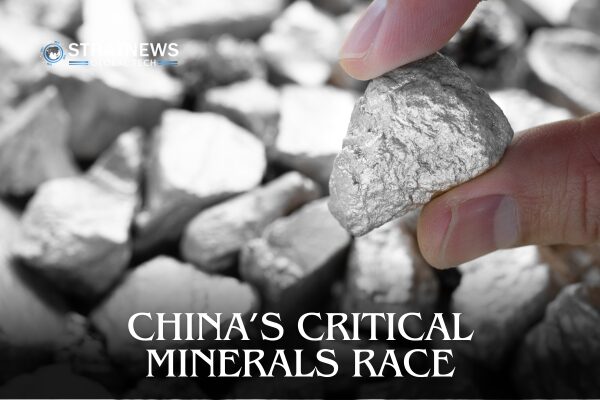China Tightens Rare Earth Export Controls Ahead of Trump-Xi Summit
China announced new restrictions on Thursday that tighten its export controls on rare earth materials, targeting overseas defence companies and advanced semiconductor manufacturers. The move adds five rare earth elements to its export control list and imposes new licensing rules on foreign users of Chinese materials and equipment.
Expanded Controls on Rare Earths and Technology
The Ministry of Commerce said the latest measures aim to regulate the export of critical resources and technologies. In addition to the new restrictions, dozens of pieces of mining and refining equipment have been added to the control list. Foreign companies using Chinese rare earths or related machinery will now need export licences, even if the final product is not sold to or through a Chinese company.
The new curbs expand on rules introduced in April, which had temporarily disrupted global supply before agreements with Europe and the US helped ease shortages. The latest round of measures takes effect on November 8, just before a 90-day trade truce between Washington and Beijing expires.
“These restrictions strengthen Beijing’s leverage ahead of the anticipated Trump-Xi summit in South Korea later this month,” said Tim Zhang, founder of Singapore-based Edge Research.
Impact on Chips and Defence Industries
China’s new export rules specifically target sectors involving advanced technology and national security. The ministry stated that overseas defence users will not be granted licences, while semiconductor-related applications will be reviewed individually. The controls cover 14-nanometer or smaller chips, memory chips with 256 layers or more, and the equipment required to produce them.
The rules also apply to artificial intelligence research with potential military use. These measures mirror US restrictions on semiconductor exports to China.
The newly added rare earth elements — holmium, erbium, thulium, europium, and ytterbium — bring the total number of restricted materials to 12. These elements are critical to producing products such as electric vehicles, aircraft engines, and radar systems.
Shares in Chinese rare earth producers surged on the news. China Northern Rare Earth Group rose 10%, China Rare Earth Resources and Technology gained 9.97%, and Shenghe Resources increased 9.4%.
Global Reactions and Industry Concerns
South Korea’s industry ministry said it was reviewing the new rules closely and would continue discussions with Beijing to limit their impact. Samsung Electronics declined to comment, while SK Hynix and Taiwan’s TSMC did not immediately respond. Despite the uncertainty, TSMC’s shares climbed 1.8% after reporting stronger-than-expected third-quarter revenue.
China produces over 90% of the world’s processed rare earths and magnets, making its policies critical to global supply chains. Although exports have increased in recent months, some foreign companies still face difficulties obtaining licences.
The commerce ministry said the restrictions were “limited in scope” and that licensing procedures would be facilitated to ensure smoother operations for legitimate buyers.
with inputs from Reuters


